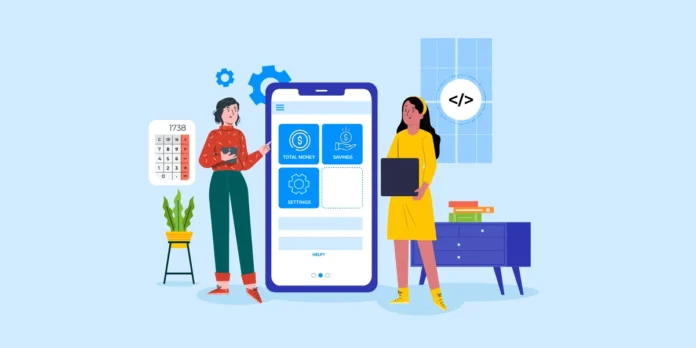Last Updated on March 17, 2024 by Umer Malik
Accounting essentially meant maintaining ledgers to track finances. While ledger keeping remains a core accounting function, technology has dramatically expanded the role and reach of accounting. Today’s cloud-based accounting software delivers deep financial insights that help businesses operate more strategically and efficiently.
Table of Contents
Automation Streamlines Basic Functions
In the past, accountants spent most of their time on routine tasks like recording transactions, reconciling accounts, and tracking payments. Not only were these chores time-consuming, they were also prone to human error.
Modern accounting systems automate many of these repetitive processes through features like:
AI-Enhanced Data Entry
Artificial intelligence can “read” paper and digital documents, extract critical details, and auto-populate accounting software. This removes the need for manual data entry, ensuring higher accuracy.
Rules-Based Transaction Coding
User-defined rules can categorize transactions based on set criteria. This eliminates time spent manually coding invoices or expenses.
Recurring Transactions
Based on predefined terms, billing, payments, and other transactions on a set schedule can be automated. This reduces effort and improves consistency.
Bank Feeds and Reconciliation
Direct connections to bank accounts allow automatic feeds of cleared payments and deposits, reconciling accounts in real-time. This provides up-to-date cash flow visibility without manual reconciliation.
Reminders and Notifications
Custom reminders ensure tasks like paying vendors or following up on invoices don’t slip through the cracks. Real-time notifications about account changes provide visibility without having to run reports.
Analytics Offer Strategic Insights
With essential accounting functions automated, accounting professionals now have time to provide strategic financial analysis optimized by accounting software features such as:
Customizable Reporting
Modern systems provide ready access to commonly used reports. Custom reports tailored to specific business needs can also be created on demand to inform decisions.
Real-Time Views of Performance
Cloud-based systems reflect changes instantaneously across ledgers, income statements, balance sheets, and other tracking tools. This enables data-driven decisions based on real-time views of cash flow, profits, and other metrics.
Predictive Modeling
Sophisticated systems apply data science to historical data, external data sets, and statistical analysis to model different growth, investment, or expense scenarios. This empowers managers to peer into the future when weighing options.
Exception Tracking
Custom rules trigger automatic alerts when financial KPIs exceed or drop below-set thresholds. This allows accounting teams to investigate issues early and proactively.
Collaborative Notes and Tasks
Comments and workflow management tools foster collaboration across finance teams. Shared context improves decision-making companywide.
Optimized Processes Boost Efficiency
Accounting software also includes tools to optimize financial processes enterprise-wide by:
Standardizing Procedures
Predefined accounting workflows ensure standardized procedures for procurement, inventory management, reporting, audits, and more. Consistent processes improve compliance and efficiency.
Automating Approvals
Invoice generation, expense reports, purchase orders, and other transactions can be routed through automatic approval chains based on policy rules. This accelerates turnaround times.
Managing Payables and Receivables
Dashboards centralize tracking of what is owed to the company versus what the company owes. Automated notifications, aging reports, and other tools help improve working capital by accelerating payments and collections.
Integrating disjointed systems
APIs allow accounting software to sync bi-directionally with companion systems like CRMs, inventory management tools, ERP platforms, and custom in-house solutions. This provides comprehensive visibility and harmony across previously siloed systems.
The Future of Strategic Financial Management
While yesterday’s accounting centred on backward-looking ledgers, today’s modern cloud-based systems provide forward-looking strategic planning grounded in real-time financial realities. This exciting evolution enables accounting teams to provide vital intelligence that helps guide critical operational and leadership decisions companywide daily. Automating mundane, repetitive tasks combined with data-driven insights propels the accounting function far beyond its ledger-keeping roots towards a pivotal, central role in actively shaping financial strategy and optimizing business performance on multiple fronts.
Conclusion:
Cloud accounting software has expanded the role and impact of accounting well beyond essential ledger-keeping. Tools for automating and streamlining core accounting processes liberate time for more strategic analysis and advisory roles. Real-time financial awareness coupled with predictive modelling empowers data-driven leadership decisions. Features that systematize, integrate, and optimize procedures companywide lead to higher compliance and efficiency. Through these advances, cloud-based accounting platforms transform the discipline from backward-facing bookkeeping to the vital, forward-facing foundation for intelligent business optimization. Rather than merely recording history, modern accounting technology leaps into shaping the future.
















